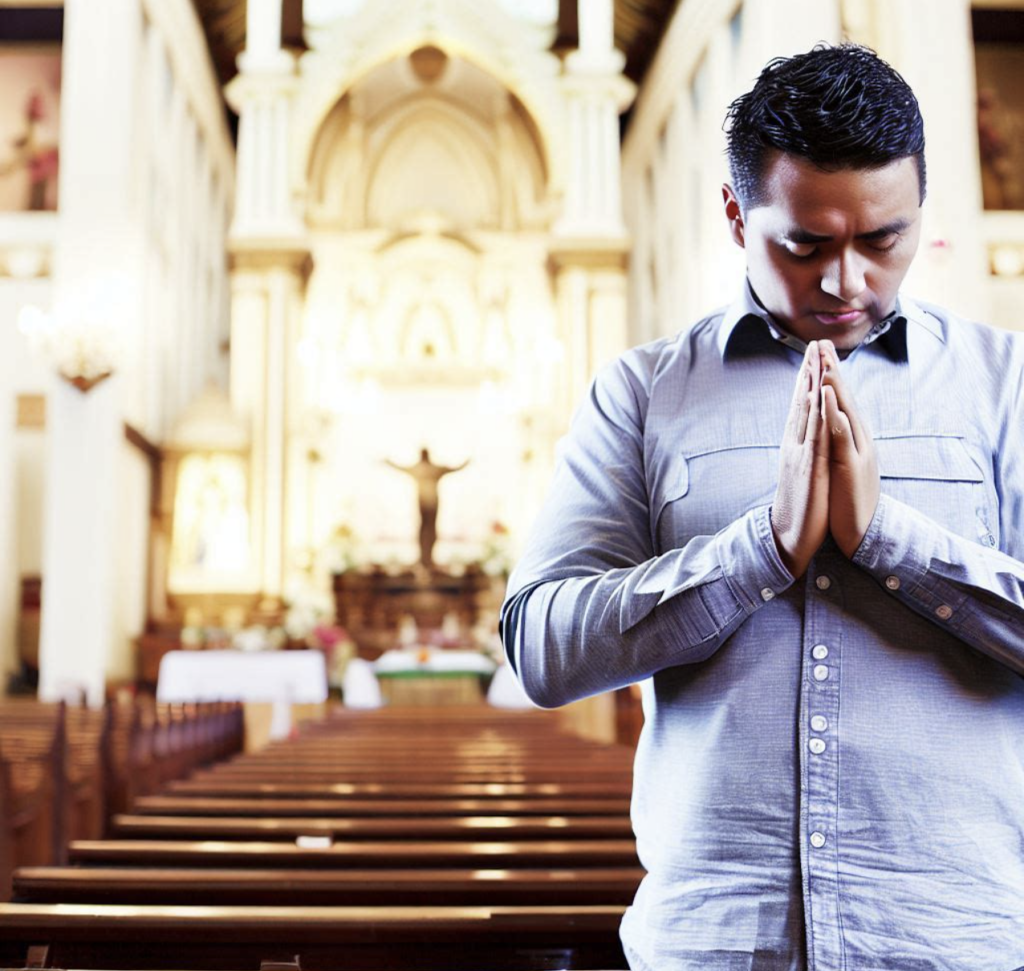
Prayer, in the Christian faith, is more than a spiritual discipline – it is a communication bridge between mankind and God. It provides believers an opportunity to express gratitude, seek forgiveness, ask for guidance, and pour out their anxieties and fears. Looking specifically at the younger demographic, it is critical to study and understand the role of prayer in youth life as they navigate the tumultuous journey from adolescence to adulthood.
The Importance of Prayer for Youth
The spiritual significance of prayer in the lives of the youth is old as religion itself. At its heart, prayer is a form of communication that bridges the seemingly insurmountable gap between the divine and the human, the infinite and the finite, the Creator and the created. For young believers, prayer plays a significant role, shaping their understanding of faith, strengthening their spiritual foundation, and fostering a personal relationship with God.
The elemental power of prayer lies in its ability to spark an inner dialogue within the youth. As they speak to God, they gradually make sense of His divine purpose for their lives. It allows them to clarify their thoughts, values, and intentions in light of their faith. This divine dialogue aids young believers in understanding their individual roles as Christians, reinforcing the values and principles they ought to uphold.
Prayer also plays an essential role in a youth’s faith journey, a journey often marked by questions, doubts, struggles, and startling revelations. Through prayer, they can express their anxieties, fears, hopes, and dreams to God, secure in the knowledge that they are being heard. Prayer becomes the steadying anchor in the tumultuous seas of adolescence and young adulthood.
In terms of personal and spiritual development, prayer plays a significant and irreplaceable role. As young people consistently engage in prayer, they cultivate a sense of discipline that can have far-reaching implications. This discipline transcends their spiritual lives, providing a road map to navigate other facets of their lives like academics, interpersonal relationships, and personal goals.
Prayer fosters spiritual maturity in youth. Through regular communion with God, they gain a spiritual depth that enables them to deal with life challenges with wisdom and resilience. A consistent prayer life helps youth develop spiritual habits that sow seeds of lasting faith, creating a formidable fortress of belief to withstand life’s trials.
Perhaps one of the most profound effects of prayer in a young believer’s life is the cultivation of a deeper appreciation of God’s power and purpose. As they witness prayers being answered, feeling divine comfort in tough times, and realizing God’s wisdom in unexpected ways, they can truly appreciate God’s omnipotence. Such experiences invariably deepen their understanding of God’s grand plan, fostering a sense of awe, reverence, and a more profound love towards their Creator.
The Impact of Prayer on the Emotional Well-being of Youth
The impact of prayer on the emotional well-being of youth goes beyond the walls of churches, temples, and spiritual gatherings. It infiltrates their day-to-day lives, shaping their responses to life’s trials and triumphs. By providing emotional support, prayer helps them navigate the often turbulent waters of adolescence and young adulthood.
Prayer provides a therapeutic release for many young people, serving as a safe space where they can freely express their innermost emotions without fear of judgment or rejection. Adolescence and young adulthood are periods dotted with immense pressures from various life domains, such as academics, relationships, and personal identity. These pressures can easily escalate into anxiety and stress if not properly managed.
In the face of academic pressure, for instance, prayer can be a source of comfort and solace. Where the overwhelming need to excel and achieve can cloud their sense of peace, a simple prayer requesting wisdom, understanding, or calm can bring relief.
When it comes to relationships, an area often fraught with misunderstanding, hurt, and confusion, prayer provides an avenue for expression. Young people can pray for forgiveness, understanding, love, and the strength to navigate complicated dynamics.
Regarding personal insecurities and self-doubt that often peak during these formative years, prayer can also be a powerful antidote. As individuals pour out their feelings of inadequacy or fears to God in prayer, they open themselves to divine reassurances of their worth and value.
This therapeutic nature of prayer subtly but significantly replaces the burdens of anxiety, fear, and worry with a peace that transcovers human understanding. Prayer brings them into a space of trust – trust in a bigger plan, in divine timing, and in divine restoration. This trust ultimately results in a sustainable inner calm and emotional balance.
The positive relationship between prayer and mental health is not just a faith-based assumption; it’s a fact backed by psychological research. Several studies have associated consistent prayer practices with reduced levels of stress and anxiety. In essence, prayer can be seen as a form of meditation that promotes mindfulness and a focus on the present moment, qualities known to improve mental health.
Prayer promotes overall emotional well-being by fostering traits like resilience, optimism, and contentment. In the face of challenges, prayerful youth are more likely to demonstrate resilience, maintaining their emotional stability despite adversity. They exhibit a more positive outlook on life, radiating optimism that can significantly boost their mood and overall mental health.
Prayer as a Tool for Guidance and Decision-Making
The journey from adolescence to young adulthood encompasses a critical phase in one’s life when crucial decisions must be made. These decisions span a variety of aspects, including educational journey, career pathway, relationship choices, and spiritual growth, among others. Faced with such a multitude of options, adolescents may find themselves overwhelmed, uncertain, or confused. During these challenging times, prayer steps in as a vital tool for guidance and decision-making.
Prayer, beyond being a platform for expressing gratitude or making requests, is a resource for seeking divine direction. Young believers often turn to prayer as their compass, helping them navigate through the complicated maze of decisions they face. As they articulate their thought processes, uncertainties, and dilemmas in prayer, they seek and often find divine enlightenment that brings clarity to their situations.
When young Christians are wavering in their faith or struggling with moral dilemmas, prayer becomes the channel by which they access spiritual guidance. By engaging in purposeful conversations with God, they are gifted with new perspectives and spiritual insights that enable them to remain true to their faith in their decision-making.
For educational or career-related decisions, prayer serves as a consultation platform where individuals lay bare their aspirations, fears, and doubts. They seek the wisdom to discern what best aligns with their abilities, passions, and purpose. Prayer allows them to surrender their plans to God, trusting that He will direct their steps toward the most fulfilling paths.
In the realm of relationships, young adults often face tumultuous emotions and uncertainties. Decisions about friendships, romantic relationships, or family relations can be particularly challenging. In such cases, the power of prayer shines through as a means of seeking discernment and counsel. Through prayer, they can reflect on their relationships, request guidance for the best course of behavior, and seek peace in their decisions.
Strengthening one’s ability to make sound decisions is another significant aspect of invoking prayer. Developing decision-making skills is a pivotal part of maturation, and prayer can facilitate this growth process. Seeking divine wisdom and guidance through prayer nurtures an individual’s decision-making skills. This constant divine consultation makes the decision-making process less daunting and develops a sense of confidence in their choices.
Encouragement and Support for Youth Prayer Life
The influence of mentors, parents, and youth leaders is instrumental in fostering a healthy prayer life among young believers. They can utilize various strategies and tools to encourage consistent engagement in prayer, aiding youth to understand and experience the transformative power it possesses.
Adults have the responsibility of modeling a consistent prayer life. Youth look up to their mentors as examples, drawing insights from their behaviors. When they observe their mentors and leaders dedicating time to prayer religiously, they understand the significance of this spiritual discipline and are more likely to incorporate it into their lives. On a practical level, adults can integrate prayer into shared activities, be it praying before meals, during family devotions, or as a part of mentorship sessions, thus demonstrating how prayer permeates everyday life.
Guidance on using scriptures in prayer can greatly encourage young believers. The Bible, laden with prayers, promises, and examples, is a rich reservoir from which adolescents can draw. Here, mentors can provide instruction and examples of how to turn scriptures into personalized prayers. This practice not only grounds their prayers in the Word of God but also reinforces their faith and deepens their understanding of Biblical truths.
Creating a safe space for expressions of doubt and questions is another crucial role that mentors and leaders can play. Journeying through life, youth may encounter situations that provoke doubt, and confusion and could stir up hard-to-answer questions. It’s crucial that they are reassured that having such questions doesn’t signify insubstantial faith. They should be encouraged to bring these doubts and questions before God in prayer, seeking answers and consolation.
Practical strategies also play a key role in fostering a vibrant prayer life. Embedding prayer in daily routines can help normalize this practice and make it a natural part of a young person’s life. This could involve setting aside certain times of the day for prayer or using daily activities as triggers for prayer. Mentorship sessions can incorporate practical exercises like these to show how prayer can be integrated into daily living.
Another practical tip is the use of prayer journals. This tool provides a concrete way for adolescents to track their prayers, witness God’s answers, and reflect on their spiritual growth over time. Additionally, they can also serve as creative outlets where youth can explore different formats of prayers – be it poems, letters, or drawings.
In an era where technology is at the fingertips, leveraging digital tools like prayer apps can be a game-changer. Multiple apps provide scripture-based prayer prompts, reminders, or communal prayer platforms, fostering regular prayer habits in an engaging and interactive manner.
